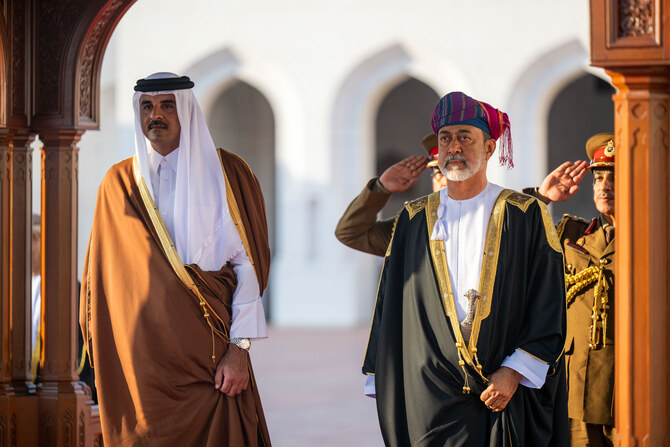KFAR KILA, Lebanon: Lebanese leaders said Beirut was in contact with Washington and Paris to press Israel to fully withdraw from south Lebanon, branding its presence in five points an “occupation” after a ceasefire deadline expired on Tuesday.
The UN called the incomplete pull-out a violation of a Security Council resolution, though it has allowed many displaced residents to return to border villages, many largely destroyed in more than a year of hostilities between Israel and Hezbollah.
Lebanese President Joseph Aoun said Beirut was in contact with truce brokers the United States and France to press Israel to complete its withdrawal, after an initial late January deadline set under the deal was already extended.
Decision-makers are “unified in adopting the diplomatic option, because nobody wants war,” Aoun said, according to a statement.
Earlier Tuesday, Lebanon said any Israeli presence on its soil constituted an “occupation.”
In a statement, Aoun, along with Lebanon’s prime minister and parliament speaker, warned the government would ask the UN Security Council to push Israel to leave, and said that Lebanese armed forces were ready to assume duties on the border, adding Beirut had “the right to adopt all means” to make Israel withdraw.
In the south, many returned to destroyed or heavily damaged homes, farms and businesses after more than a year of fighting between Israel and Iran-backed Hezbollah that included two months of all-out war, which halted with the November 27 ceasefire.
“The entire village has been reduced to rubble. It’s a disaster zone,” said Alaa Al-Zein, back in Kfar Kila.
Israel had announced just before the pullout deadline that it would keep troops in “five strategic points” near the border, and on Tuesday its Foreign Minister Gideon Saar said they would withdraw “once Lebanon implements its side of the deal.”
Israel’s army had said it would remain on the five hilltops, overlooking swathes of both sides of the border, “temporarily” to “make sure there’s no immediate threat.”
Lebanon’s army announced it had deployed, starting Monday, in 11 southern border villages and other areas from which Israeli troops have pulled out.
The official National News Agency said two people were found alive in Kfar Kila, three months after contact was lost. One was a Hezbollah fighter thought to have been killed.
The agency also said that “enemy forces” set off a powerful explosion outside the village of Kfarshuba.
In a joint statement, UN envoy Jeanine Hennis-Plasschaert and the UNIFIL peacekeeping force said that at “the end of the period set” for Israel’s withdrawal and the Lebanese army’s deployment, any further “delay in this process is not what we hoped would happen.”
They said it was a violation of a Security Council resolution that ended a 2006 Israel-Hezbollah war.
In Lebanon, the cost of reconstruction is expected to reach more than $10 billion, while more than 100,000 people remain displaced, according to the United Nations.
Despite the devastation, returning resident Zein said his fellow villagers were adamant about going home.
“The whole village is returning, we will set up tents and sit on the ground” if need be, he said.
Others were going south to look for the bodies of their relatives under the rubble.
Among them was Samira Jumaa, who arrived in the early hours to look for her brother, a Hezbollah fighter killed in Kfar Kila with others five months ago.
“We have not heard of them until now. We are certain they were martyred,” she said.
“I’ve come to see my brother and embrace the land where my brother and his comrades fought,” she added.
Hezbollah strongholds in south and east Lebanon, as well as in south Beirut, suffered heavy destruction during the hostilities, initiated by Hezbollah in support of ally Hamas during the Gaza war.
Under the ceasefire, Lebanon’s military was to deploy alongside United Nations peacekeepers as the Israeli army withdrew from the south over an initial 60-day period that was later extended to February 18.
Hezbollah was to pull back north of the Litani River, about 30 kilometers (20 miles) from the border, and dismantle remaining military infrastructure there.
Since the cross-border hostilities began in October 2023, more than 4,000 people have been killed in Lebanon, according to the health ministry.
On the Israeli side of the border, 78 people including soldiers have been killed, according to an AFP tally based on official figures, with an additional 56 troops killed in southern Lebanon during the ground offensive.
Around 60 people have reportedly been killed in Lebanon since the truce began, two dozen of them on January 26 as residents tried to return to border towns on the initial withdrawal deadline.




























